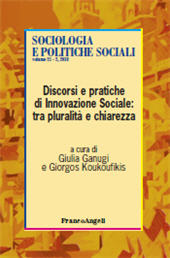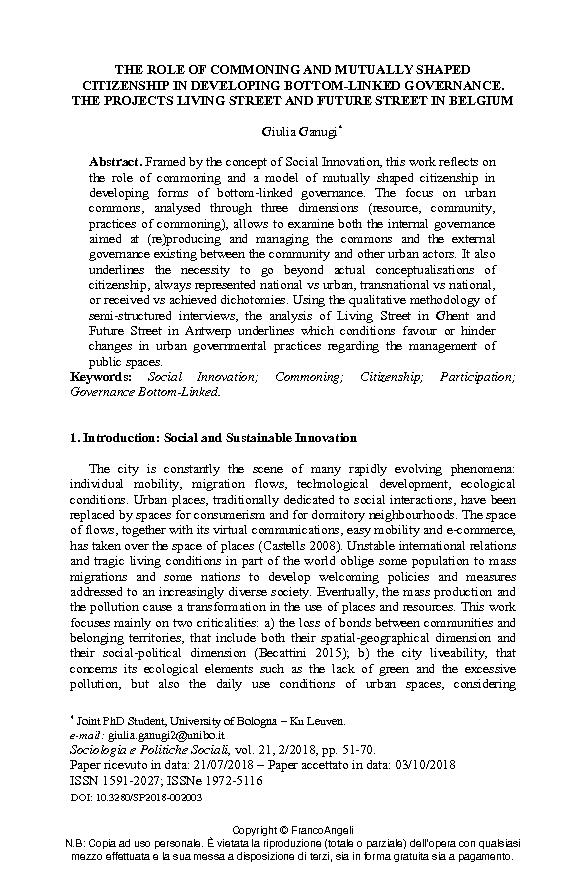The role of commoning and mutually shaped citizenship in developing bottom-linked governance : the projects living street and future street in Belgium
51-70 p.
Framed by the concept of Social Innovation, this work reflects on the role of commoning and a model of mutually shaped citizenship in developing forms of bottom-linked governance. The focus on urban commons, analysed through three dimensions (resource, community, practices of commoning), allows to examine both the internal governance aimed at (re)producing and managing the commons and the external governance existing between the community and other urban actors. It also underlines the necessity to go beyond actual conceptualisations of citizenship, always represented national vs urban, transnational vs national, or received vs achieved dichotomies. Using the qualitative methodology of semi-structured interviews, the analysis of Living Street in Ghent and Future Street in Antwerp underlines which conditions favour or hinder changes in urban governmental practices regarding the management of public spaces. [Publisher's text].
Is part of
Sociologia e politiche sociali : 2, 2018-
Articles from the same issue (available individually)
-
Information
ISSN: 1972-5116
KEYWORDS
- Social Innovation, Commoning, Citizenship, Participation, Governance Bottom-Linked



